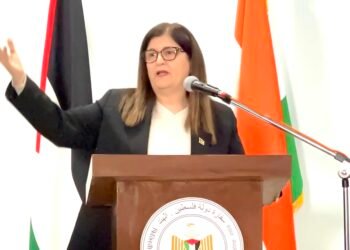DAR ES SALAAM:Tanzanian President Samia Suluhu Hassan has appointed Mwigulu Nchemba, a seasoned politician and longtime ally, as the country’s new Prime Minister following a fiercely disputed national election that sparked deadly protests and international concern.
The Tanzanian Parliament on Thursday confirmed Nchemba’s nomination in a near-unanimous vote — an expected outcome given the ruling Chama Cha Mapinduzi (CCM) party’s overwhelming majority. Nchemba, a former Finance Minister and cabinet member under late President John Magufuli, pledged to “serve diligently and restore public trust in governance.”
The appointment comes as rights groups and the United Nations Human Rights Office report widespread violence during protests that followed the October 29 election, in which hundreds possibly more than a thousand people were allegedly killed by security forces. The government disputes those figures, calling them “exaggerated,” but has not released official casualty data.
Economic Challenges and Political Stakes
Tanzania’s government projects 6% economic growth in 2025, buoyed by major public investments in infrastructure, energy, and transport, including flagship railway and power projects. However, these plans are unfolding amid rising debt levels and reduced foreign aid — with cuts from key partners including the United States and several European donors, who have cited human rights concerns.
Nchemba, an economist by training and a parliamentarian since 2010, inherits a delicate balancing act: stabilizing the economy while restoring domestic and international confidence in the government’s democratic credentials.
“President Hassan’s faith in Nchemba is strategic,” said Richard Mbunda, political analyst at the University of Dar es Salaam. “He has survived every reshuffle since 2021 a sign that she sees him as a loyal stabilizer in a turbulent political environment.”
Election Fallout and Human Rights Scrutiny
Opposition parties have rejected the election results, accusing the ruling CCM of vote-rigging and blocking key challengers from contesting. The government has dismissed these claims, insisting the polls were “free and fair.”
Rights monitors, however, tell a different story. The U.N. Office of the High Commissioner for Human Rights (OHCHR) said it was “deeply alarmed” by the scale of post-election violence, urging an independent inquiry into alleged killings and detentions.
President Hassan, who rose to power in 2021 following Magufuli’s sudden death has defended her record, calling her administration’s approach “firm but fair.” Yet international observers argue her government is becoming increasingly intolerant of dissent as Tanzania navigates economic pressures and political fragmentation.
A Cabinet Choice With Strategic Implications
By choosing Nchemba, Hassan appears to be signaling continuity rather than reform. His fiscal background and party loyalty could help steer major infrastructure spending, but his appointment also consolidates Hassan’s control over both the CCM hierarchy and the national legislature.
As Tanzania seeks to rebuild credibility abroad and calm tensions at home, the new Prime Minister’s performance will likely define the country’s next political chapter, one balancing growth, governance, and global scrutiny.
-George Obulutsa and Vincent Mumo Nzilani



















